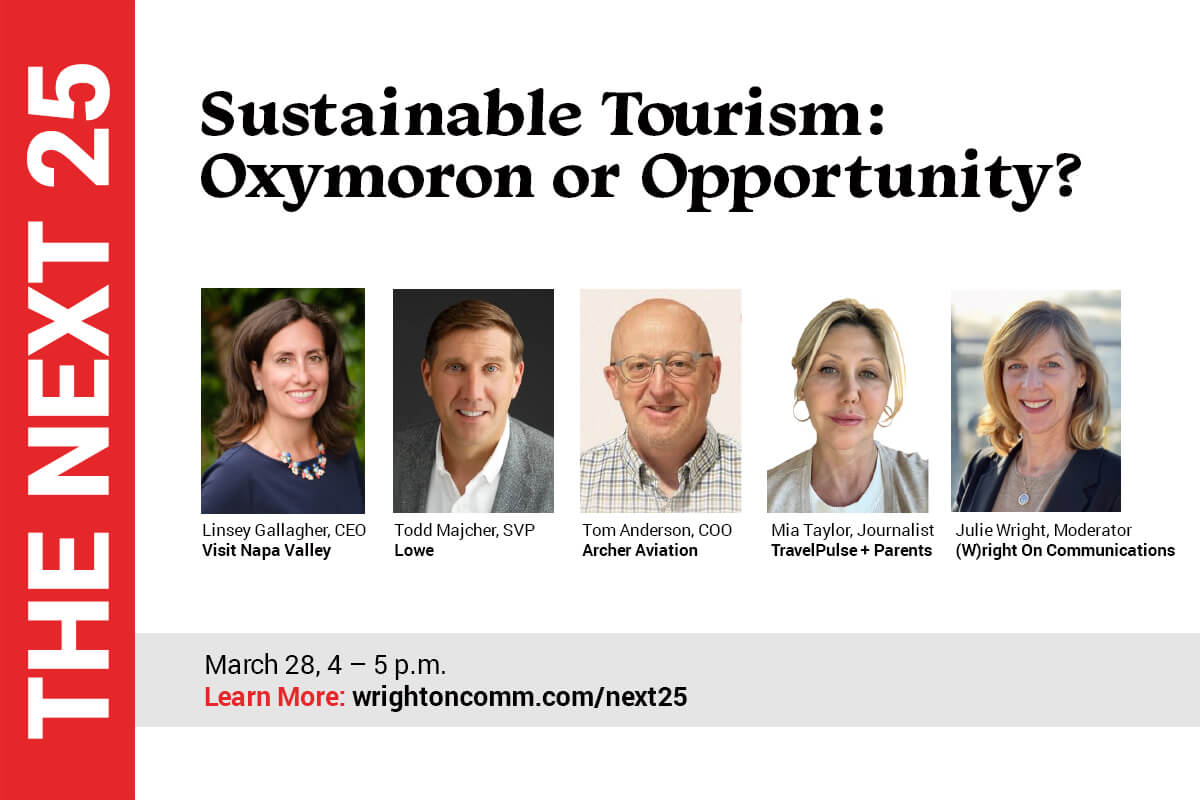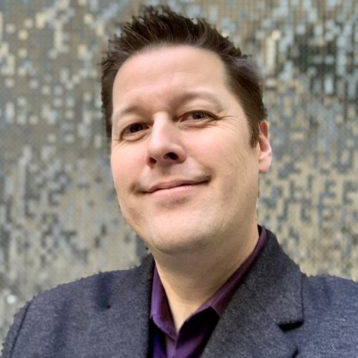For us communicators at (W)right On, it’s essential we understand and practice the art of conversation. It’s in part why we recently hosted a PRSA seminar on networking skills for industry up-and-comers, and on March 28th as part of The Next 25 series celebrating our 25th Anniversary will be hosting a panel of world-class tourism and travel industry experts to talk about the Future of Sustainable Tourism. Being both in-person at our San Diego headquarters and broadcast live online, it will be another great opportunity to put our conversational skills into practice.
Shown in Celeste Headlee’s interesting TED talk, it’s apparent that fewer and fewer of the younger generation are developing and exercising this skill. Imagine if the 1/3 of teens who send more than 100 texts per day instead worked on their conversational skills: they’d be better prepared for the dating scene, career opportunities and so much more. As Harvard University’s David Deming points out, “high-skilled, difficult to automate jobs increasingly require social skills.” In fact, surveys have for decades highlighted the importance of soft skills – such as oral communication; teamwork/collaboration; professionalism/work ethic; written communications; and critical thinking/problem solving – that are increasingly hard to come by.
Becoming an older person myself, I wrestle with this issue. On the one hand, it seems to me we need to learn – and teach – oral conversation skills for the numerous good reasons just noted. On the other hand, the tidal wave of alternate communication like texts, tweets, SnapChats and Instagram, TikTok and Facebook posts, to say nothing of the evolving immersive world, cannot be ignored. Communication evolves, and so must we all. So is the latter the new reality, with the art of conversation destined to a fading past? I think not.
At (W)right On, we deeply understand the importance of relationships in just about all endeavors. And at the heart of every developing and flourishing relationship is conversation. When we provide presentation training, media training, a social media program, and just about everything else we do, at the core of each is conversation. So while Celeste focuses on tips for conversations while you’re in them at networking events, say, I offer these thoughts as to how to get in – and out – of them.
- Go for it– Relax and let go of your fear, since there’s always something you can use to start a conversation. Ask a question, whether it’s for help, an opinion or advice. Make a provocative statement, or muse about a hypothetical situation. Noticing something about the other person (not too personal) or a mutual friend will usually pique their interest to talk with you. Having some topics in mind beforehand will let your subconscience be doing some prep work for you.
- Be aware of timing– Catching someone with their mouth full or clearly with one foot out the door is likely to be unproductive. But noticing and approaching someone by themselves in a crowded room will usually be met with appreciation.
- Embrace diversity– Conversations are more interesting if they’re with someone less like yourself. To switch things up, avoid the ‘comfort zone’ with your clone, and instead seek to converse with someone who knows things you don’t, be it a younger or older person or someone from another culture, societal background and/or education type and level. You’re less likely to find yourself drawing blanks since differences and new information are inherently more interesting than consistent agreement.
- Exit gracefully– Too much of a good thing can be just that, so it’s important to know when to move on gracefully. If needed, you can use a common reason (‘have to get back to…’, ‘connect with [person] before they leave’, ‘take this call/text I’ve been waiting for’, etc). If needed, you can also pull someone else into the conversation to tactfully take over for you. If you’re there with a colleague, you may even have a pre-arranged cue to help you guard your time. In any case, listen for the natural transition, keep the ending on a positive note and recap follow-up actions (so that it’s not so much a ‘good bye’ as it is a pause in the conversation to be picked up later).
The art of conversation is just that: an art. Though some seem to possess the gift of gab, it really isn’t something genetically programmed within a certain few. Great conversation skills must be taught, role modeled and ultimately learned and kept sharp. Like many skills, becoming good at communicating is as much about attitude and willingness to put in the effort as it is about technique – if you continue to work hard and develop your abilities, before too long it becomes effortless.
This post is updated from an earlier version published in 2016.
ABOUT THE AUTHOR: Grant Wright is CEO of (W)right On Communications, Inc., the award-winning integrated strategic communications firm founded in 1998. With offices in San Diego, Los Angeles, and Vancouver, B.C., his team handles complex communications challenges for B2B tech, cleantech and energy, healthcare, tourism and hospitality, not-for-profit and public sector organizations. Wright and his team elevate the agency experience through data-driven insights and measurable results for client partners.












 Grant Wright
Grant Wright Corie Fiebiger
Corie Fiebiger
 Shae Geary
Shae Geary Phelan Riessen
Phelan Riessen Katrina Early
Katrina Early Hamish Marshall
Hamish Marshall